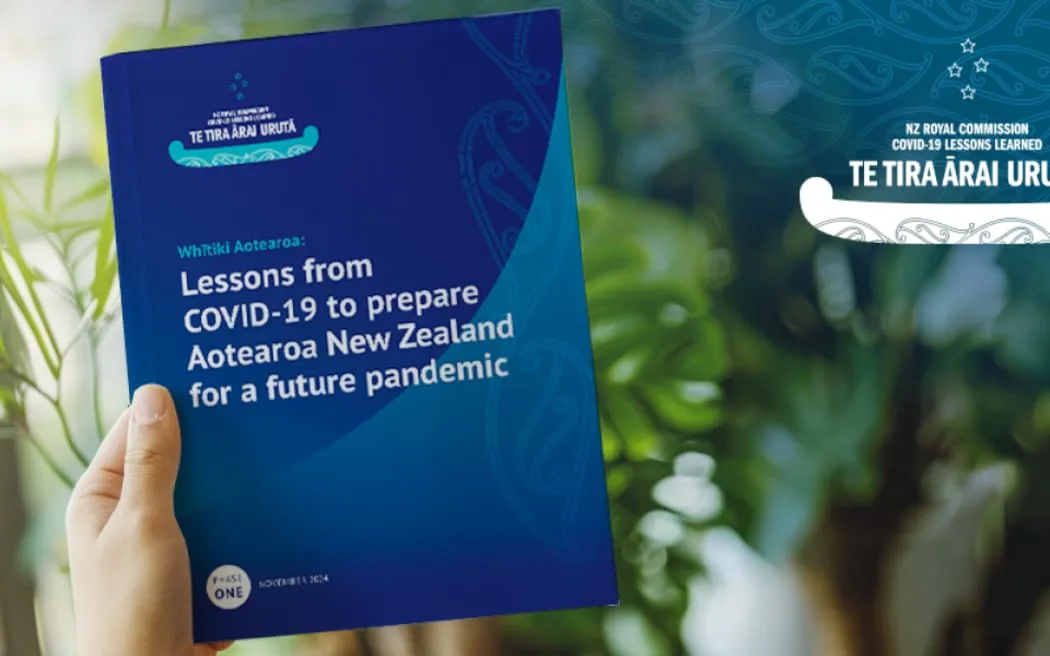The Royal Commission Report on the COVID-19 Response: Lessons Learned
The COVID-19 pandemic has had far-reaching consequences for New Zealand, from the economic impact to the toll on public health and democracy. The government’s response was marked by both successes and failures, and now a royal commission has released its report on what went wrong and how it can be improved upon.
**Lessons Learned**
The first phase of the inquiry, set up by the previous Labour government, had sought lessons from the COVID-19 response between February 2020 and October 2022. The report identifies several key areas where improvements can be made to better prepare for future pandemics.
One of the most significant challenges faced during the pandemic was the rollout of vaccines. While the vaccine rollout was successful in terms of coverage rates, it fell short of delivering equitable outcomes for Pacific peoples. The report notes that this is not due to personal or whānau choice, but rather factors such as geographical barriers, lack of cultural alignment between providers and those receiving vaccines, and historical breaches of trust.
“The inquiry therefore regards lower vaccine coverage in Māori and Pacific peoples as an inequality,” the report states. “Opportunities were missed when it came to getting the population vaccinated, despite the evident effort that went into the vaccine rollout, and the high rates of coverage it had achieved by late 2021.”
The report also notes that once Māori, Pacific, and community-based providers were brought into the vaccine rollout, they were highly effective in supporting vaccine uptake within their communities. However, this could have been done earlier to avoid some of the challenges faced during the pandemic.
**Auckland Lockdown**
Another key area where improvements can be made is in the decision-making around lockdowns. The report notes that the decision to maintain a long Auckland lockdown was influenced by leaders’ reluctance to share information with the public, particularly regarding decisions affecting Māori and Pacific communities.
“However, leaders were reluctant to make this reasoning public in case of a public backlash against these communities,” the report states. “But deciding not to share the reasons behind such decisions came at a cost.”
The report concludes that COVID-19 showed us that governments need to be willing to share information with the public, however difficult or uncomfortable, in order to retain their trust in government, public institutions, and the response.
**Recommendations**
The royal commission recommends several key changes to improve New Zealand’s preparedness for future pandemics. These include:
* Developing an all-of-government response structure that can be quickly stood up in a pandemic
* Establishing processes and accountability mechanisms to protect democratic and human rights during a pandemic response
These recommendations are aimed at ensuring that the government is better equipped to respond to pandemics in the future, particularly when it comes to vulnerable populations such as Māori and Pacific peoples.
**Conclusion**
The COVID-19 pandemic has been a difficult and trying time for New Zealand. However, by learning from the lessons of the past, we can build a stronger and more resilient future. The royal commission’s report provides a clear roadmap for improvement, and it is essential that the government takes these recommendations seriously in order to protect the health and well-being of all New Zealanders.
New Zealand prime minister Christopher Luxon said the government would take time to digest the report. Labour leader Chris Hipkins, who was heavily involved in the Covid-19 response, said the Royal Commission report will help prepare for the next pandemic.
“We have the plan; now all we need is a rapid government response, proactive leadership and anticipatory decision-making to give New Zealand the pandemic preparedness it urgently needs,” Professor Michael Baker from University of Otago said.

0 Comments